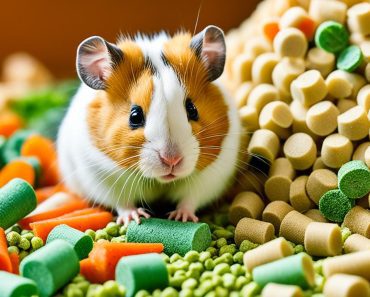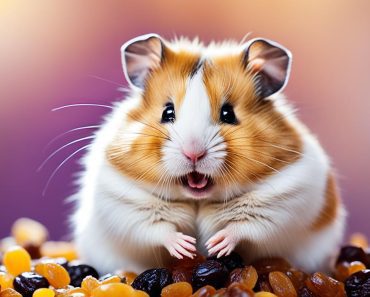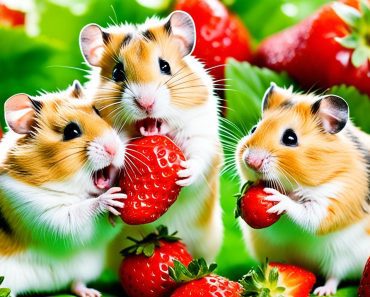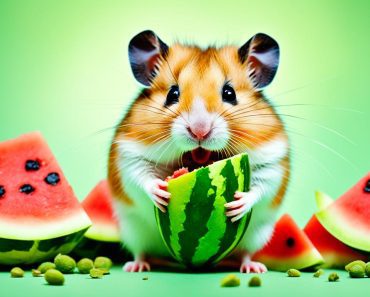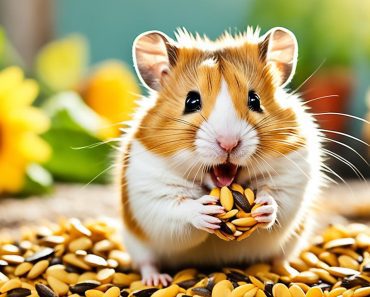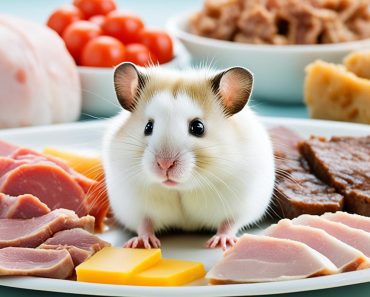Hi there, fellow hamster owners! Today, I want to address a common question that many hamster lovers have pondered: Can hamsters eat pineapple? As a responsible hamster owner, it’s important to ensure that the treats we give our furry friends are safe and nutritious. Let’s delve into the world of hamster nutrition and explore whether pineapple is a suitable snack for our little companions.
Can Hamsters Eat Pineapple? Yes, they can. But in controlled amounts.
- Yes, hamsters can eat pineapple, but it should be given in small quantities and as an occasional treat.
- Pineapple is high in sugar, so it’s important to limit its consumption to prevent weight gain and other health issues.
- Remove the skin and core of the pineapple before serving it to your hamster.
- Offer pineapple in small, soft pieces to prevent choking hazards.
- Monitor your hamster’s response to pineapple and adjust their diet accordingly.
Health Benefits of Pineapple for Hamsters
Pineapple offers numerous health benefits for hamsters, making it a great addition to their diet. The fruit is rich in essential nutrients, vitamins, and antioxidants that can promote their overall well-being.
1. Vitamin C Boosts Immunity and Aids in Healing
Pineapple is packed with vitamin C, which plays a crucial role in supporting hamsters’ immune system. It helps to strengthen their defenses against common illnesses and infections. Additionally, vitamin C is involved in the healing process, promoting faster recovery from wounds or injuries.
2. Fiber Improves Digestion and Provides Satiety
The fiber content in pineapple aids in digestion for hamsters. It helps regulate their bowel movements and prevents any constipation issues. Furthermore, fiber provides a sense of fullness, helping hamsters feel satisfied after consuming pineapple as a treat.
3. Rich in Antioxidants to Protect Cells
Another notable benefit of pineapple is its abundance of antioxidants. These compounds help protect hamsters’ cells from damage caused by harmful free radicals. Antioxidants play a vital role in maintaining optimal health and can contribute to reducing the risk of various diseases in hamsters.
Incorporating pineapple into your hamster’s diet can provide them with these essential health benefits. However, it’s important to do so in moderation due to the high sugar content and potential digestive issues that pineapples can cause.
Risks of Pineapple for Hamsters
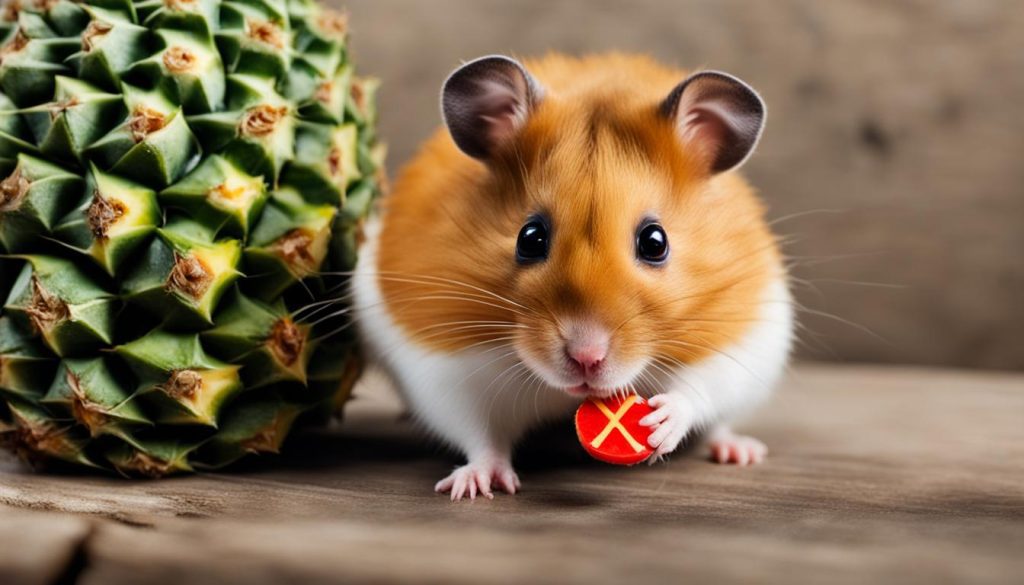
While pineapple can be a delicious and nutritious treat for hamsters, it’s important to be aware of the potential risks associated with it. One of the main concerns is the high sugar content in pineapple, which can lead to weight gain and obesity if given in large amounts or too frequently.
Hamsters have small stomachs and limited digestive capabilities, so consuming excessive amounts of pineapple can put a strain on their digestive system and lead to digestive issues, such as upset stomachs and diarrhea.
In addition to the high sugar content, overindulging in pineapple can also cause nutritional problems for hamsters. While pineapple does offer some health benefits, such as vitamin C and antioxidants, relying too heavily on pineapple in their diet can result in an imbalance of other essential nutrients they need to thrive.
It’s important to remember that hamsters are small animals with specific dietary needs, and their diet should consist primarily of specially formulated hamster pellets, fresh vegetables, and occasional fruit treats. Pineapple should only be given sparingly as an occasional treat, and portion control is crucial.
By regulating the amount of pineapple your hamster consumes and ensuring it is part of a balanced diet, you can minimize the risks and enjoy watching your furry friend indulge in this tropical delicacy.
Proper Serving Size of Pineapple for Hamsters
When it comes to feeding pineapple to hamsters, portion control is key. Hamsters should only be given a small serving size of pineapple to ensure they stay healthy and maintain a balanced diet. Serving pineapple in excess can lead to weight gain and other potential health issues.
The recommended serving size of pineapple for hamsters is a piece no larger than their paw, measuring approximately 1 x 1 cm in size. This small portion is enough to provide them with a taste of the fruit without overwhelming their digestive system.
It’s important to start with a smaller piece of pineapple to gauge your hamster’s response. Observe their behavior and watch for any signs of discomfort or digestive upset. If they enjoy it and tolerate it well, you can continue to offer them this treat occasionally.
Remember, moderation is key. It is recommended to offer pineapple treats to your hamster no more than once every 2 weeks or so. This helps prevent them from consuming too much sugar and maintains a well-balanced diet.
By practicing portion control and offering pineapple in the appropriate serving size, you can safely incorporate this tasty fruit into your hamster’s diet without any adverse effects.
Serving Pineapple to Hamsters Safely
When serving pineapple to hamsters, it is important to take certain precautions to ensure their safety and well-being. Here are some guidelines to follow:
1. Preparing Pineapple for Hamsters
To serve pineapple to hamsters, you need to remove the skin and core, as they are not safe for consumption. Only offer the fleshy parts of the fruit in bite-sized bits. This will make it easier for hamsters to eat and digest without any potential choking hazards. Additionally, removing the skin and core helps to reduce the sugar content, which is important for their overall health.
2. Checking for Rotting Food
Hamsters are known to hoard food in their hiding spots. When serving pineapple, it is crucial to check their hiding spots regularly for any rotting food. If any pineapple is left uneaten, remove it promptly to prevent spoilage and the growth of harmful bacteria. This will ensure that your hamsters are not consuming any spoiled food, which can lead to digestive issues.
3. Fresh Pineapple is Best
Opt for fresh pineapple over canned or frozen varieties. Fresh pineapple retains its nutritional value and is free from any preservatives or added sugar. It is always recommended to provide your hamsters with the freshest and safest food options for their optimal health and well-being.
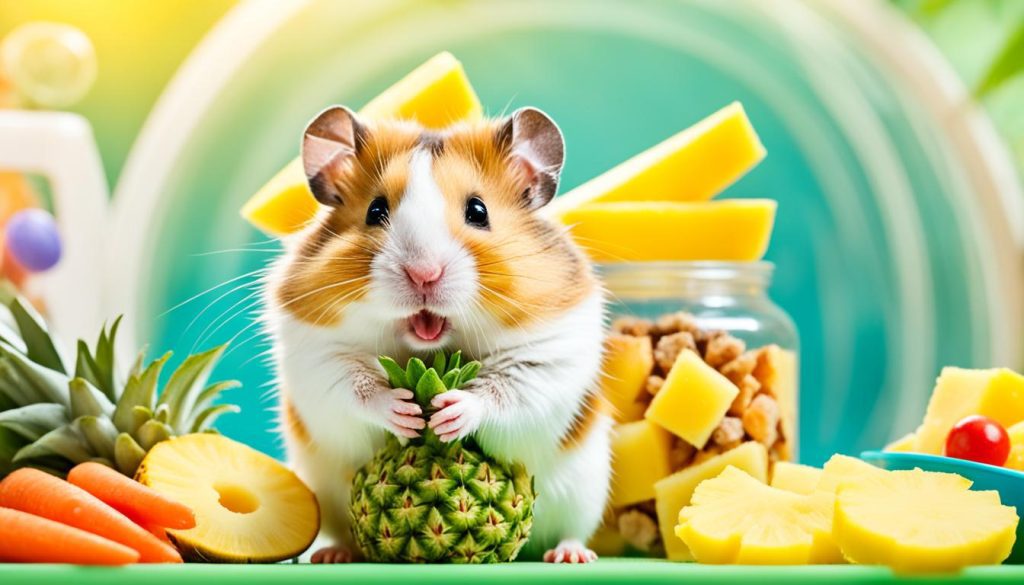
Can All Hamsters Eat Pineapple?
While pineapple is generally enjoyed by most hamsters, individual preferences may vary. Just like humans, hamsters have unique tastes and preferences when it comes to food. Some hamsters may be hesitant to try pineapple or may not enjoy the flavor. If you offer pineapple to your hamster and notice that it consistently leaves it untouched, it may not be a fan of the fruit.
Hamsters, like any other living creature, have their own preferences when it comes to treats. While some hamsters may happily munch on juicy pineapple, others may prefer different fruits or treats. It’s essential to pay attention to your hamster’s preferences and provide it with foods that it truly enjoys.
Observing your hamster’s behavior and response to certain foods will help you understand its preferences and tailor its diet accordingly. If your hamster doesn’t enjoy pineapple, there are plenty of other safe fruits and vegetables that you can offer as treats. Remember, variety is key to providing a balanced and nutritious diet for your furry friend.
Conclusion
Pineapple can be a safe and tasty treat for hamsters when fed in moderation. It offers various health benefits, such as vitamin C for a stronger immune system and antioxidants to protect their cells. However, due to its high sugar content, it is important to limit their consumption to avoid weight gain and other related issues. Furthermore, pineapple should be served in small, soft pieces, without the skin or core, to prevent any potential digestive problems.
While pineapple can be a rewarding addition to a hamster’s diet, it should not be a regular part of their daily meals. Portion control and moderation are key to maintaining a balanced nutritional intake for your furry friend. Remember, their primary diet should consist of hamster pellets, fresh vegetables, and occasional fruits like pineapple.
Overall, understanding the benefits and risks of feeding pineapple to hamsters is important for their overall well-being. By providing pineapple as a treat in appropriate portions, you can enhance their diet and offer a flavorful snack that they can enjoy. Always observe your hamster’s preference and adjust their diet accordingly to ensure their health and happiness.

